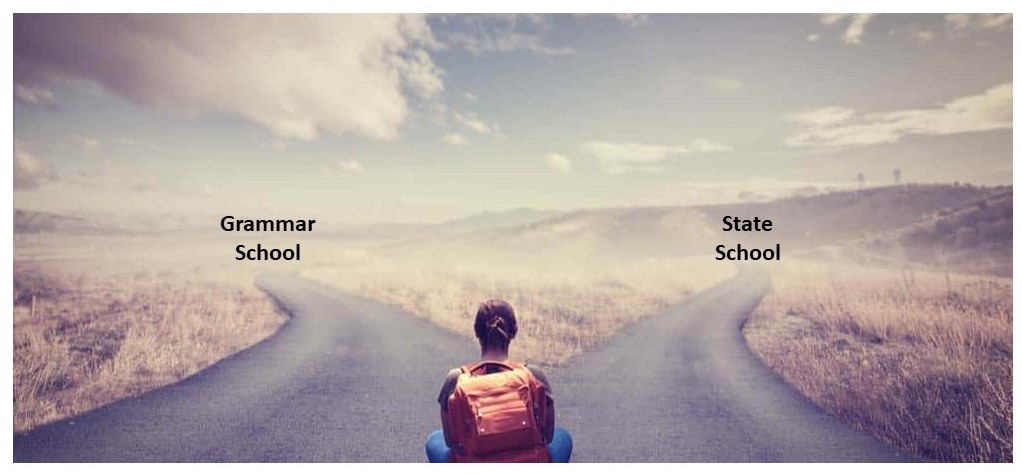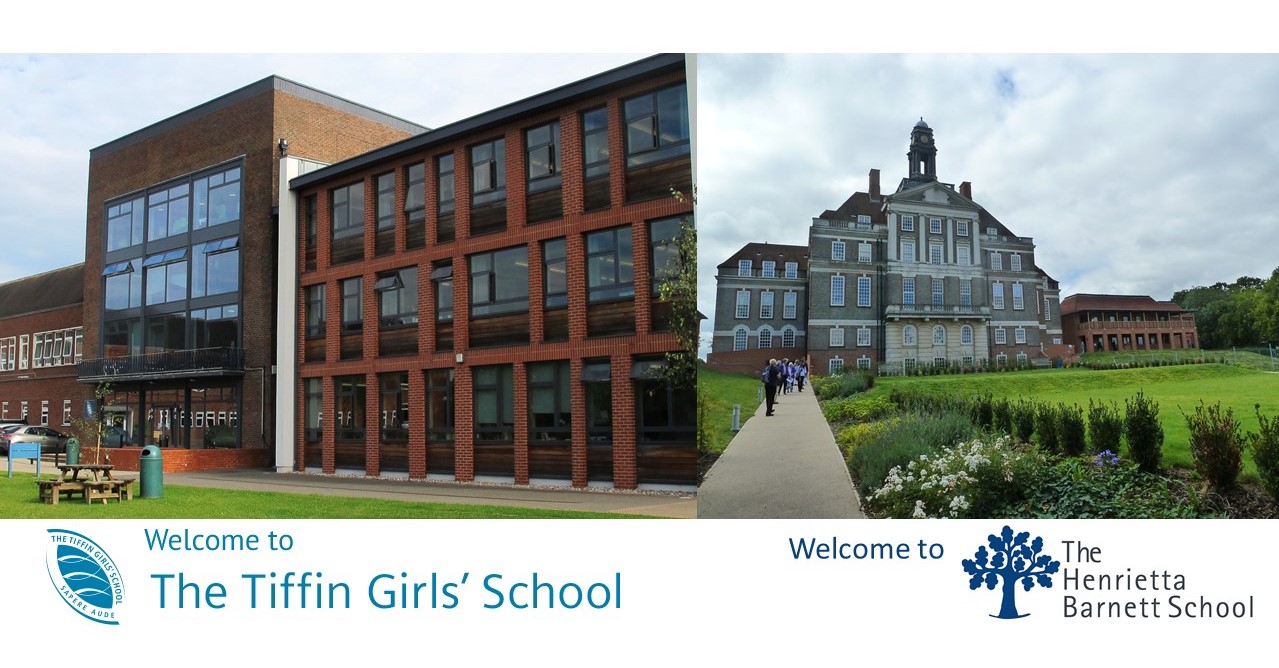

1. The future after 11 Plus transcendence.
By this time, each student in Year 6. will have received an admission confirmation for their secondary schools. Most of them should have secured an admission in a school from the choices they have given in the CAF form. Secondary school phase starts at Year 7 and finishes with Year 11 which is GCSE. Year 7, Year 8 and Year 9 are termed as Key Stage 3 and Year 10 and Year 11 are termed as GCSE.
Many parents and some students worry about these admissions as they have specific schools on their expectation list. Some prepare hard for the grammar school admission and some for Independent schools. Getting into a Grammar school does not end academic challenges for a student. In fact, they must realise that they are heading towards a more critical phase of education in their life. There are equal challenges for both those who pass these exams and those who do not.
Founder of "11PLusexampapers.co.uk" says "Passing an 11 Plus exam doesn't reduce your educational work in the secondary school. It is equal for all the students across all types of schools".
It is necessary for students and parents to understand this transition to secondary school and the very different social phase well in advance. This will help them plan their secondary school duration more wisely and strategically.
2. A phase of independent learning of personal responsibility
Many students realise the big change in teacher -student relationships, in the school atmosphere as soon as they step into secondary school. The pampering or a soft cushion by Elementary teachers and that school system become rare or invisible in Secondary. The secondary school expects you to manage yourself on time, work, homework, exams, communication. A student is engaged by the school in some additional activities like roll call, helping meetings, registration etc. All these changes expect a student to be more responsible and more independent.
Simple things such as instructions from the teachers are given to the students and they are expected to share the information with their parents. All important pieces of primary information are shared with parents also, but school expects a student to give the day-to-day communications. This is primarily because, unlike Elementary schools, parents do not get to visit Secondary schools every day, during drop off or pick up and thus do not get to meet school authorities or other parents on a daily basis.
A student has to manage his own timetable; interaction with teachers and his queries; be responsible enough to manage his/her priorities, windows of communication and workload. There is also a sense of independence which develops in a student in this phase as there is no more parent micromanagement (hand-holding, being accompanied to-and-from school, managing subjects and homework) etc.
3. A phase of choices and selection
Secondary school offers some choices about your subjects and activities. The subject's portfolio becomes wider and choices are varied. The subjects are structured to prepare a student for further education as well as being a good, well informed citizens. This phase also offers you an opportunity to select academic subjects related to your hobby or you can choose to expand your language skills with other languages. There are opportunities also to select your passion, hobby and learn more about it. This phase suddenly becomes a bigger canvas than in primary where you have to try to paint your picture with your choice of colours.
Many students and thus parents feel overwhelmed with this phase due to the mere size of options and no self-knowledge about their strengths. Secondary school phase doesn't expect you to select and make final choices in your first year. It offers you choices to select from wisely.
4. A phase of narrowing the subjects.
Secondary school phase can be divided into two parts such as Key Stage 3 and GCSEs.
Key Stage 3 is a phase where a student should try his choices and learn to know his/herself well. This will help them to narrow down with choices of their preferred subjects for further education. This becomes a good foundation phase and the most important one. Foundation – because it moulds a tender, soft mind of a child into a more responsible, independent and focussed teenager.
A secondary teacher from Champs Learning narrated his experience with students of this age. He said "The age during key stage 3 is very mouldable and open to all inputs. If the right knowledge is shared, the students can really make more informed choices about their future which is the best thing can happen during this phase."
Towards the end of Key Stage 3, a student must select his optional subjects for GCSEs. 4 subjects are mandatory and minimum four are optional. In the first three years of secondary school phase, a student is given exposure to many subjects, system, exam flow and career advice to have a better understanding which direction he/she wishes to take for their future education/career.
This phase of secondary helps you to narrow down your subject choices.
5. A phase of profile building
Though university admission is far away from the starting year of secondary, these five years of secondary school are very important and useful for profile building. A student should work upon his interest areas including academic, non-academic and any supportive to his academic interest. This is recommended to build a student's profile towards his/her academic or personal career goal. These areas can be from their interest in sport, music, performing arts, fine arts, public speaking, social work, IT skills or any other things which will make a student ready for the universal skills of the university education and subsequent professional career.
Most of the students focus on achieving grades (which is highly important) and some also work on their extracurricular activities. It is highly recommended to attend as many seminars, workshops, talks on varied interest areas, participate some programmes such as DOEF, summer schools, part time activities. These actions will not only give one knowledge about the subject, but also answers many questions about the career, subject area and future prospects. If one can slowly narrow down these areas, they start getting clarity on further direction, then they can also do some parallel supportive courses in the selected areas. This is nothing but profile building. When one applies to university, then a student will have lot more clarity to answer why this university, why this course and what does he/she wishes to do in their career. University admission team or a future employer would like to see a prospective student with clarity of thoughts behind a career decision and have worked around it to gain more knowledge.
As Year 11 onwards, achieving grades becomes very important, a phase of secondary school up to Year 10 and some part of Year 11-12 should be utilised wisely for this profile building.
Director of Champs Learning says "We mentor all our students and their parents from Year 6. onwards during this phase for these activities. When students make a choice of their university subjects, they are not only making a decision for their degree, but possibly for a profession which they will be engaged in throughout their career. That's why the well-informed choice becomes crucial to go forward."
6. A phase with direction and goals
Secondary school phase acts as a phase with direction to your further education and career. This phase also makes you decide your academic, professional and personal goals. These five to seven years from Year 7. onwards become a pathway towards such goals. With good exposure to various subjects and knowledge areas, a student acquires a clarity on these ambitions and can decide the direction for the future.
7. A phase with emotions
Last but not the least, secondary school phase is also a phase of emotions. This is the phase where students become teenagers. They start believing in themselves; form their own opinions; have their own viewpoints; accumulate new friends; hopefully become responsible for their own actions and achievements; learn to face peer pressure to perform better; learn to overcome insecurities or failures; understand personal health issues; create role models and so on.
Last but not the least, secondary school phase is also a phase of emotions. This is the phase where students become teenagers. They start believing in themselves; form their own opinions; have their own viewpoints; accumulate new friends; hopefully become responsible for their own actions and achievements; learn to face peer pressure to perform better; learn to overcome insecurities or failures; understand personal health issues; create role models and so on.
Last but not the least, secondary school phase is also a phase of emotions. This is the phase where students become teenagers. They start believing in themselves; form their own opinions; have their own viewpoints; accumulate new friends; hopefully become responsible for their own actions and achievements; learn to face peer pressure to perform better; learn to overcome insecurities or failures; understand personal health issues; create role models and so on.
To conclude, I will say, one should pay more attention to this phase of secondary education for their own child or student as it builds the foundation for his/her future.

